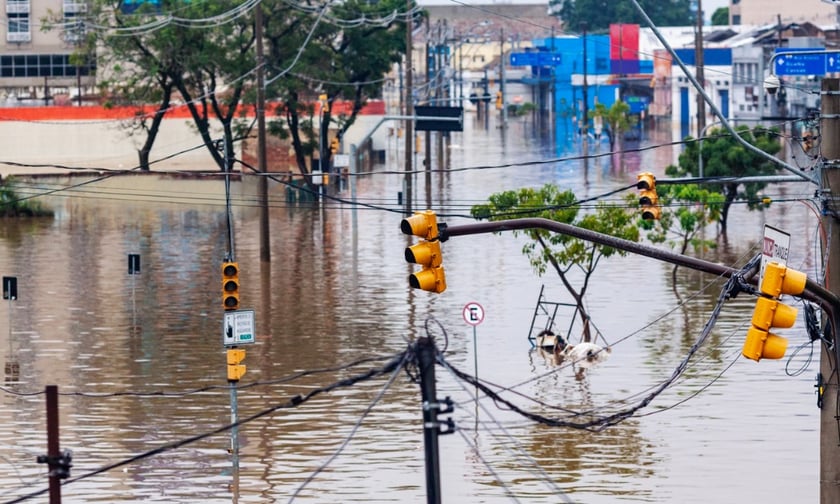

Heavy rain continued to batter Dunedin and other parts of the Otago region on Friday after city mayor Jules Radich declared a state of emergency for the flooded South Island city. Dozens of people were evacuated and news reports described the city as effectively cut off.
Over the weekend, hundreds of residents continued to deal with flooded properties, power outages and road closures. The National Institute of Water and Atmospheric Research (NIWA) said that Friday was Dunedin’s wettest day on record.
Insurance Business reached out to industry firms in Dunedin to find out more about damages and other insurance implications.
When IB spoke to Tim Loan (pictured immediately below) on Friday afternoon he said the rain was still heavy. Loan is with Abbott Insurance Brokers and is manager of the firm’s Southern branch in Dunedin.

So far, he said, mostly residential rather than commercial properties were impacted by the flooding. At that stage, his firm had received few claims.
“There'll be more to come,” Loan said and suggested some would be from rural properties.
However, he said this flooding didn’t take insurers by surprise.
“The good thing is that people were ready for it,” said Loan. “There's been good response from insurers and our claims team is on high alert.”
Abbott’s loss assessors contacted the firm earlier in the week when weather reports showed that the looming flood event was looking very likely. They provided his brokers with their direct dial numbers.
Their insurer, he said, also established a category code in advance of the flooding for his firm to use when they submit claims.
“So the systems are there but because we're still right in the midst of it I don't think we've seen the level of claims come through yet,” said Loan. “For the ones that have come through, it’s been about trying to get onsite to secure the property so there's not further damage occurring.”
IB asked Loan to describe the scene from his Dunedin office.
“I’m in the middle of Dunedin city and there isn’t a lot of visibility [because of the weather],” said Loan. “A lot of the flooding is happening out south of Dunedin.”
IB asked him what he sees as his biggest current insurance challenge.
“I think part of the challenge is just trying to get homes watertight,” he said.
Loan said the aim is to get help to stricken residents at their homes to stop further damage occurring.
“Probably the challenge right at the moment is being able to get people on site to actually stop further damage occurring,” he said.
In January last year Auckland recorded its wettest month on record. The Insurance Council of New Zealand (ICNZ) described the flooding that resulted as “Aotearoa New Zealand’s largest climate event.”
According to the ICNZ’s data there were nearly 48,000 claims, more than half of them for residential property damage. The total value of those property losses was about $480,000. Commercial claims numbered less than 4,000 but their damage value was more than $320,000.
Total claims damage costs reached more than $1 billion. Four people died in the flooding.
In February 2023, when trans-Tasman insurance giant Insurance Australia Group (IAG) released half-yearly financial results, the Auckland floods significantly impacted profits.
A media release said IAG’s preliminary assessment of the natural perils cost impact, net of reinsurance, would be at the $236 million retention level.
“The Auckland event, combined with the escalation in supply chain inflation has delayed our ability to fully demonstrate our strategic and operational progress in FY23,” said CEO Nick Hawkins.
In recent weeks, Hurricane Helene, one of the worst to ever hit the United States, caused widespread flooding. News reports say 190 people died and insurance losses are expected to exceed US$5 billion. The federal government has deployed more than 10,000 soldiers and aid workers to deal with the disaster.
Heavy rainfall that began on Sept. 27 in Nepal also caused floods and landslides. The United Nations has reported that 215 people died and 4,500 were rescued. The capital city, Kathmandu was inundated.
Are you an insurance stakeholder in Otago? Please tell us about your flood challenges below?
